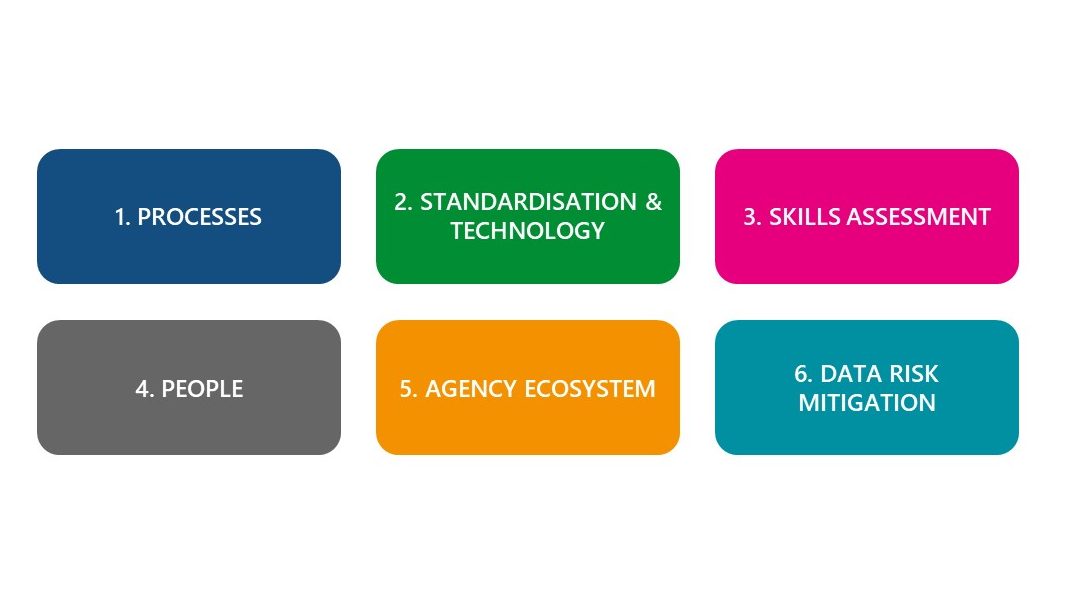The ongoing COVID-19 crisis has shown advertisers how important a well thought-through marketing process is in order to produce quality output without endless approval rounds and exhausted teams. In many cases it has simplified the process overnight, the question is, will be go back to old ways of working. I hope not.
Staying close to the consumer and engaging in meaningful conversations is key to staying relevant in today’s market.
There are obviously many important factors that enable modern marketing and Flock recently partnered with the WFA to conduct a piece of research on the evolution of the Marketing Operations function. From this research Flock have developed six top tips for marketing operations

Defining clear Roles and Responsibilities should be a first step in organising your marketing department.
I’m sure you all have been in meetings with more than 15 of your colleagues, all looking at each other with the same question “What are we doing here, what is this meeting for?”
In a clearly defined ways of working model you could be able to save time and be more efficient and therefore be able to spend more time on the things that really matter, like improving the quality of your work with well thought-through strategies and brilliant creative work.
At its very best, process design can realise the full potential of marketing teams, enabling all team members (internal and external) to follow the same steps to deliver key activities, ensuring optimal speed, resourcing & transparency, whilst providing enough flexibility. At its worst, process design can tie-up marketers in bureaucratic knots and constrain creativity.
Flock has helped many global advertisers with more agile and efficient marketing process design.
KPIs
The KPI setting process is critical to setting a framework for a more effective marketing process. It should act as the thread that connects marketing performance to the other key stakeholders in the operation. By analysing your performance against the defined KPIs, you can easily assess what is and isn’t working and adjust your activation plans to optimise your campaigns accordingly.
We recently worked on a Agile Marketing BRED-Analysis where we identified KPI setting and measurement as a key dependency for successful more agile marketing.
Three characteristics of KPIs can be defined as follows:
• Quantitative. KPIs can be presented in the form of numbers.
• Practical. KPIs integrate well with existing company processes.
• Actionable. KPIs can be put into practical application to effect the desired change.
To be effective, a key performance indicator must be based on legitimate data, therefore choosing the right mar-tech solution is another key dependency for successful KPI tracking, enabling a more data-driven marketing approach.
Your KPIs should also be defined in such a way that external factors, beyond your control, or the control of your company, cannot interfere with them. Another key issue is that KPIs should have a specific time frame that is divided into key checkpoints for accuracy.
Flock helps align a set of internal and external KPIs to ensure that marketing operations are effective, but more importantly, can optimise to improve. This service helps companies efficiently report and collect analytics .
A recent project showed that continuously measured KPIs leading to better communication across teams. Flock achieved time-savings in the marketing planning processes of 15% reduction in meetings and 25% reduction time spent in meetings per campaign.



